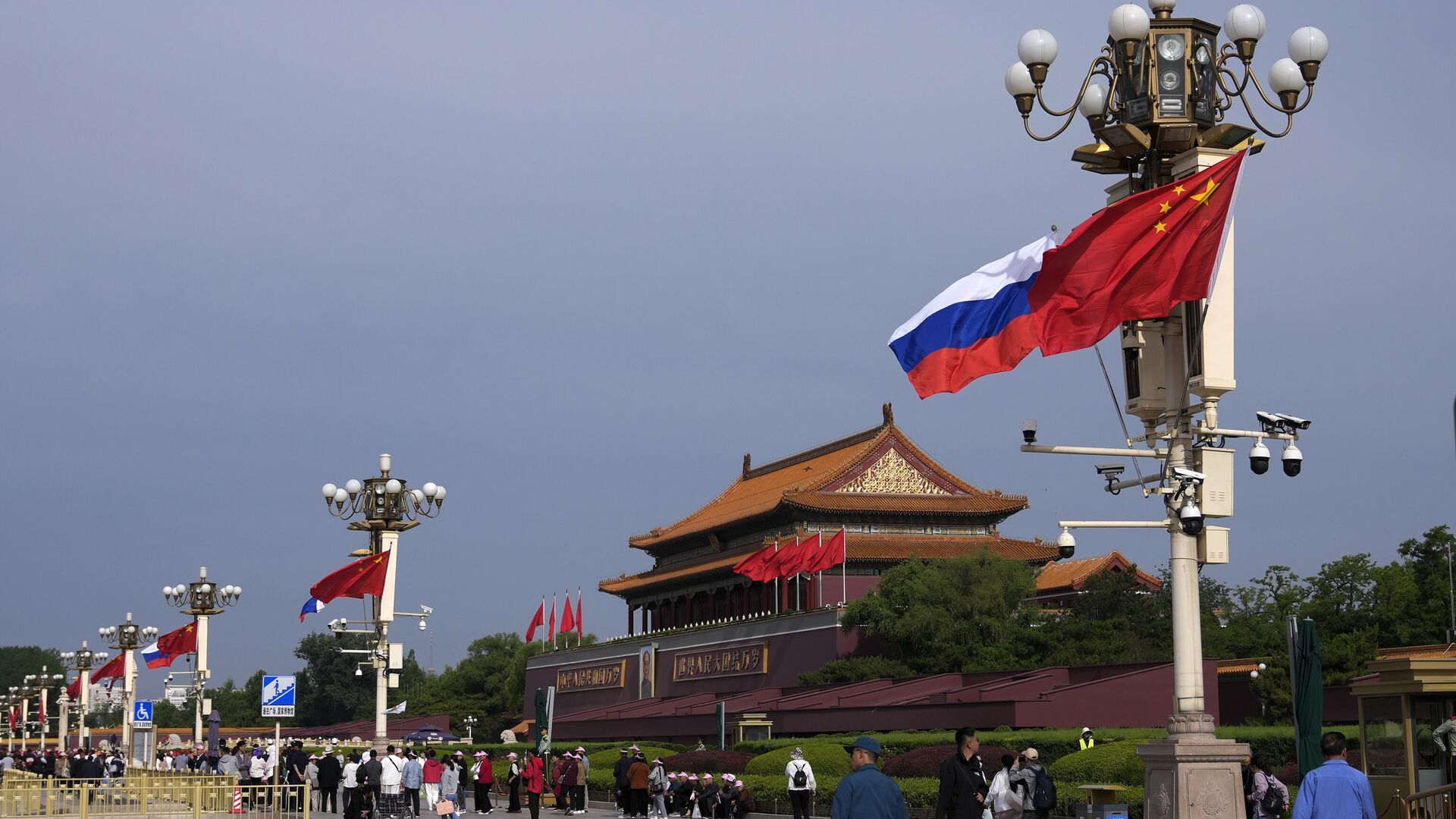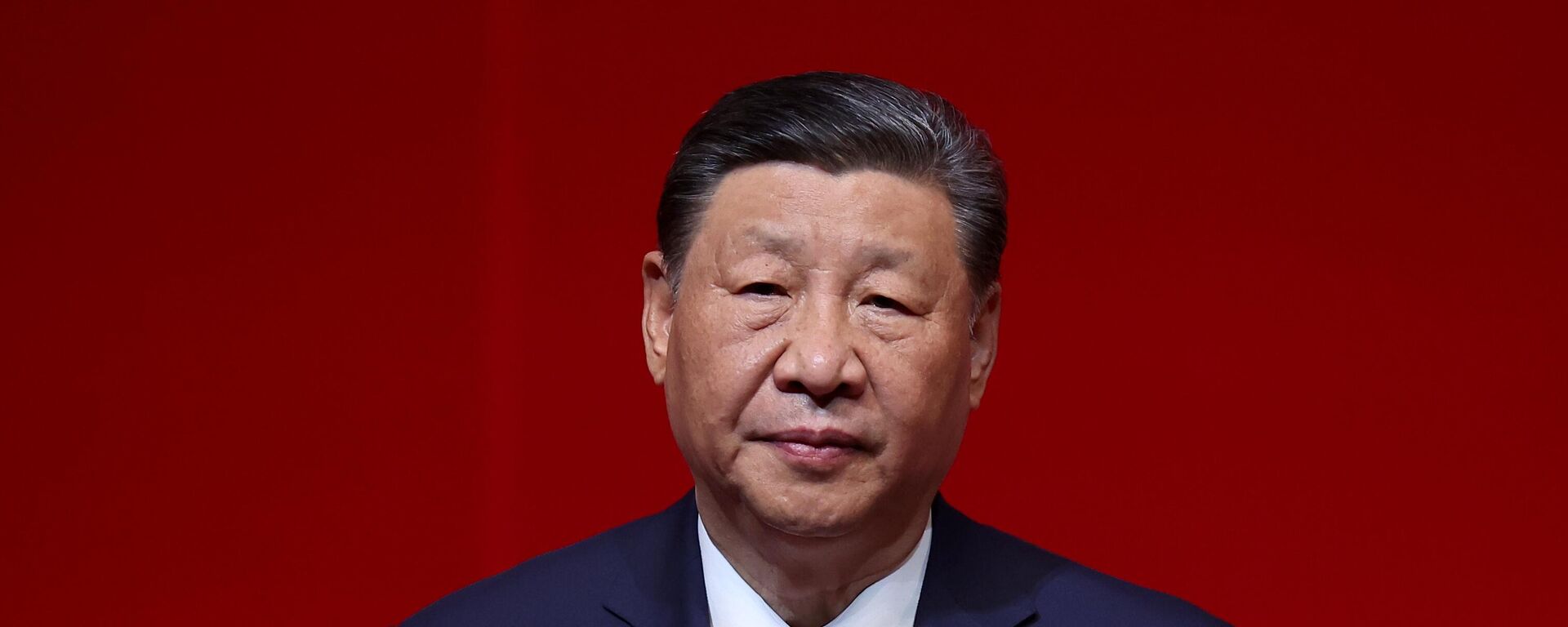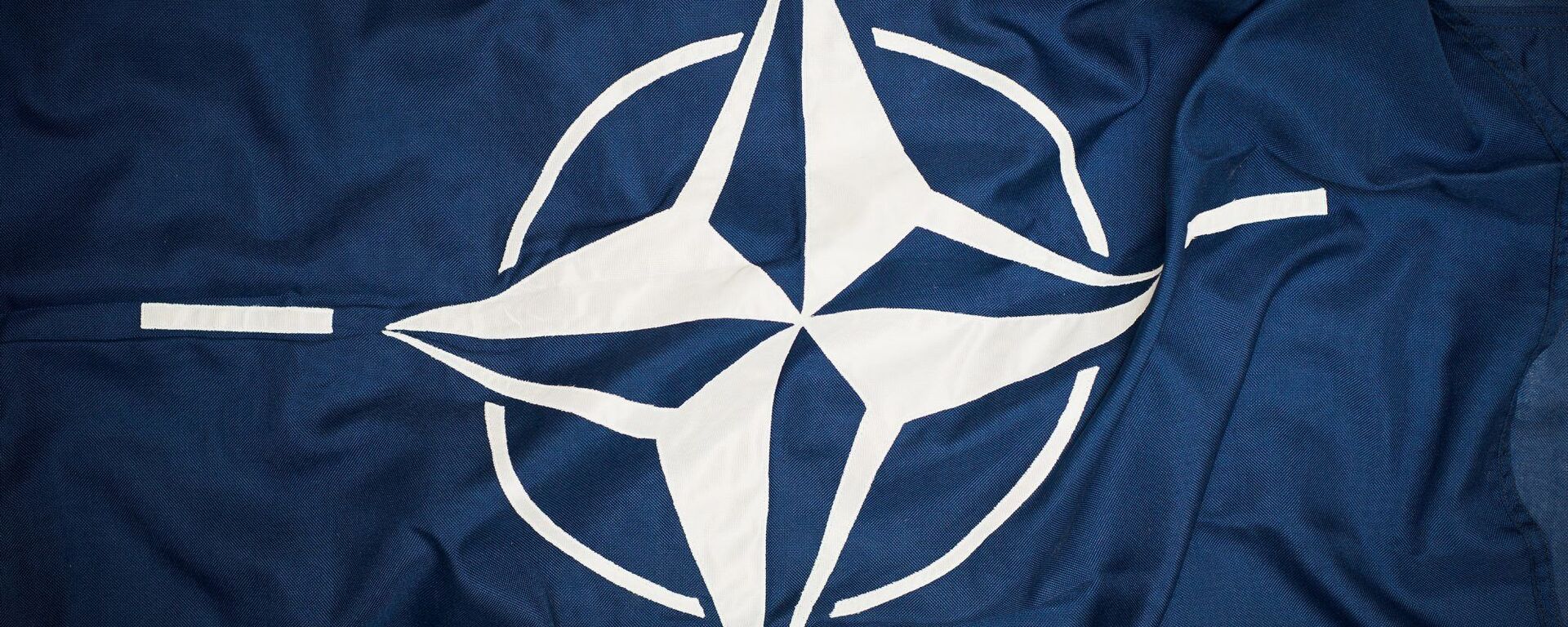https://sputnikglobe.com/20240711/nato-tantrum-over-chinas-challenge-to-rules-based-order-sign-of-decline-of-wests-hegemony-1119343085.html
NATO Tantrum Over China's 'Challenge to Rules-Based Order’ Sign of Decline of West’s Hegemony
NATO Tantrum Over China's 'Challenge to Rules-Based Order’ Sign of Decline of West’s Hegemony
Sputnik International
NATO's Washington Summit declaration mentioned China a total of fourteen times, labeling the Asian nation as a "challenge" to the alliance's "interests, security and values." The statement is another sign that the sun is setting on the West's unipolar moment, veteran geopolitical analyst and former US Marine Brian Berletic told Sputnik.
2024-07-11T19:17+0000
2024-07-11T19:17+0000
2024-07-11T19:17+0000
analysis
china
russia
west
nato
european union (eu)
https://cdn1.img.sputnikglobe.com/img/07e8/05/10/1118479190_0:160:3072:1888_1920x0_80_0_0_78b545c6a27072e7443642023c1b7e2e.jpg
Beijing has lashed out at NATO over its attempts to "provoke confrontation" after the bloc labeled China a security "challenge" and "decisive enabler" of Moscow in the ongoing Russia-NATO proxy war in Ukraine."NATO should stop hyping up the so-called China threat and provoking confrontation and rivalry, and do more to contribute to world peace and stability," a spokesperson from China's diplomatic mission in the European Union said in a statement Thursday.Emphasizing that China was "not the creator of the Ukraine crisis" and that the PRC's position on the crisis "is open and aboveboard," the spokesperson suggested that "instead of scapegoating others, NATO should reflect on itself, take real actions to defuse the situation and solve the problem."The spokesperson called on NATO to halt a creeping expansion into Asia, saying the bloc "should not become the disruptor of peace and stability in the Asia-Pacific region," or serve as a "tool used by certain powers to maintain hegemony."The response followed the publication of NATO's official Washington Summit Declaration on Wednesday, where China was mentioned over a dozen times, and slammed over its "'no-limits' partnership" with Russia, and the "systemic challenges to Euro-Atlantic security" supposedly posed by the Asian giant.Western Rules-Based Order is a Farce“These ‘rules’ are enforced by what was until now the West’s monopoly on global financial, economic and military power,” according to the observer. “China’s rise, its cooperation with nations like Russia and the many members of BRICS undermine both the monopolies the West has enjoyed for decades, as well as the impunity those monopolies granted the West.”The rise of China, Russia, and the developing world undermines the “primacy” and “hegemony” of the West, but is not any sort of actual threat to the national security of NATO’s members, Berletic believes. In an ideal world, NATO countries would have to try to “find a constructive role to play among other nations around the globe rather than impos[ing] themselves” on others.
https://sputnikglobe.com/20240711/china-advises-nato-to-think-about-its-actions-not-blame-others-in-ukraine---mission-to-eu-1119334779.html
https://sputnikglobe.com/20240711/nato-declaration-is-stark-neoconservative-recommitment-to-us-hegemony---sachs-1119335102.html
china
russia
west
Sputnik International
feedback@sputniknews.com
+74956456601
MIA „Rossiya Segodnya“
2024
News
en_EN
Sputnik International
feedback@sputniknews.com
+74956456601
MIA „Rossiya Segodnya“
Sputnik International
feedback@sputniknews.com
+74956456601
MIA „Rossiya Segodnya“
is china a threat to nato, does nato fear china, why does nato fear china
is china a threat to nato, does nato fear china, why does nato fear china
NATO Tantrum Over China's 'Challenge to Rules-Based Order’ Sign of Decline of West’s Hegemony
NATO's Washington Summit declaration mentioned China a total of fourteen times, labeling the Asian nation as a "challenge" to the alliance's "interests, security and values." The statement is another sign that the sun is setting on the West's unipolar moment, veteran geopolitical analyst and former US Marine Brian Berletic told Sputnik.
Beijing has lashed out at NATO over its attempts to "provoke confrontation" after the bloc labeled China a security "challenge" and "decisive enabler" of Moscow in the ongoing Russia-NATO proxy war in Ukraine.
"NATO should stop hyping up the so-called China threat and provoking confrontation and rivalry, and do more to contribute to world peace and stability," a spokesperson from China's diplomatic mission in the European Union said in a statement Thursday.
Emphasizing that China was "not the creator of the Ukraine crisis" and that the PRC's position on the crisis "is open and aboveboard," the spokesperson suggested that "instead of scapegoating others, NATO should reflect on itself, take real actions to defuse the situation and solve the problem."
The spokesperson called on NATO to halt a creeping expansion into Asia, saying the bloc "should not become the disruptor of peace and stability in the Asia-Pacific region," or serve as a "tool used by certain powers to maintain hegemony."
"NATO should stop hyping up the so-called China threat and provoking confrontation and rivalry, and do more to contribute to world peace and stability," the statement concluded.
The response followed the publication of NATO's official Washington Summit Declaration on Wednesday, where China was
mentioned over a dozen times, and slammed over its "'no-limits' partnership" with Russia, and the "systemic challenges to Euro-Atlantic security" supposedly posed by the Asian giant.
According to the alliance, "the deepening strategic partnership between Russia and the PRC and their mutually reinforcing attempts to undercut and reshape the rules-based international orders" has been "cause for profound concern."
Western Rules-Based Order is a Farce
“It’s important first to understand that when NATO mentions a ‘rules-based international order’, they are referring to a geopolitical order in which wealthy Western nations determine the ‘rules’ in order to serve their own best interests, often at the expense of what is actual international law,” veteran geopolitical analyst and former US Marine Brian Berletic told Sputnik.
“These ‘rules’ are enforced by what was until now the West’s monopoly on global financial, economic and military power,” according to the observer. “China’s rise, its cooperation with nations like Russia and the many members of BRICS undermine both the monopolies the West has enjoyed for decades, as well as the impunity those monopolies granted the West.”
The rise of China, Russia, and the developing world undermines the “primacy” and “hegemony” of the West, but is not any sort of actual threat to the national security of NATO’s members, Berletic believes. In an ideal world, NATO countries would have to try to “find a constructive role to play among other nations around the globe rather than impos[ing] themselves” on others.
“NATO’s communique says loudly that the alliance has no intention of doing the former, and is intent on continuing to do the latter. In its pursuit to impose its ‘rules’ at the expense of actual international law, NATO exposes itself as the greatest threat to global peace, stability and prosperity,” Berletic summed up.




